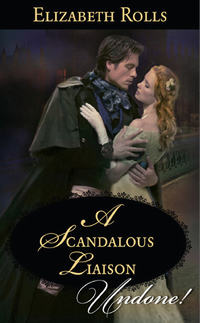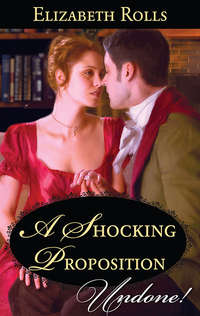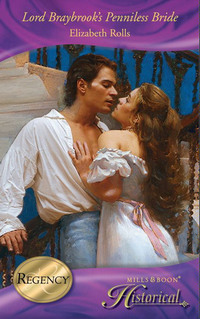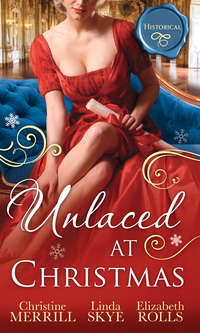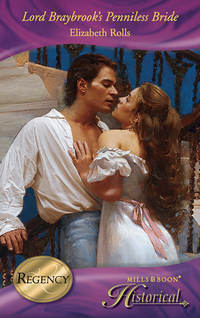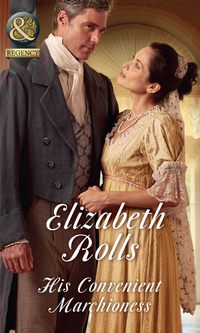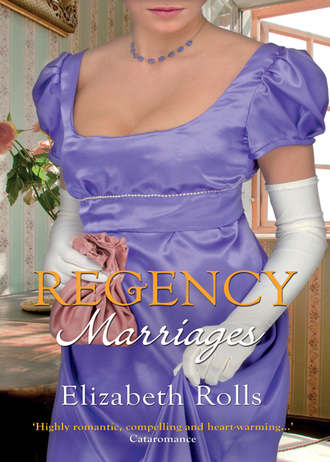
Полная версия
Regency Marriages: A Compromised Lady / Lord Braybrook's Penniless Bride
‘More champagne, Thea?’ he suggested, in as light a tone as he could muster. He’d known Thea for so long—not surprising if he felt protective towards her. She was lovely—desire was not surprising either. But this tenderness, this welling up of delight merely to see her smile … to see her smile in his arms—this was different.
‘Good evening, Mr Blakehurst.’
Chill disapproval splintered in the voice.
Richard turned slowly to find Lord Aberfield watching them, his face expressionless. ‘Lord Aberfield.’ He acknowledged the older man with a bow. Beside him, Thea stood motionless. Silent.
The moment stretched as Richard felt the tension sing between the pair of them. He flicked a glance at Thea. No shadows, but the woman he had been dancing with was gone. In her place stood a marble statue, blue eyes frozen to arctic winter.
Then, in a voice that cut like a polar wind, she spoke. ‘Good evening, my lord.’
A perfectly correct form of address … for a perfect stranger. As a young woman’s greeting to her father, it was the ultimate snub. And in that icily correct voice, it was a snub with a sting in the tail.
Not surprisingly Aberfield’s face turned slightly purple.
Thea continued, ‘You are well again, my lord?’
‘Very well,’ he grated. ‘A word with you, Dorothea! In private.’
Her brows lifted. ‘Oh? Yes, I think that is possible.’
Aberfield’s teeth grated audibly at the implication that Thea might have, if she had chosen, refused his request. ‘Perhaps, daughter,’ he said with silky emphasis, ‘you would come with me, then. There is much that I wish to discuss with you. Privately.’
‘Now?’ Her fan flickered open with a swish, and she disappeared behind it. ‘I assumed you meant to call tomorrow at Arnsworth House. Yes, that would be better. Far more scope for privacy there. What time will suit you?’
‘Now would suit me!’ snapped Aberfield.
Thea’s smile was a naked blade. ‘I am afraid, dear sir, that Lady Arnsworth would be sadly inconvenienced were I to steal her carriage and return home now. But I am perfectly happy to hold myself at your disposal tomorrow. Call at whatever time suits you. I promise you shall find me home.’
For a moment it looked as though Aberfield might explode, but he nodded and stalked away.
To say that Lady Arnsworth was unimpressed the following morning to hear that her protégée had undertaken to remain at home all day awaiting her father’s convenience, would have been an understatement.
‘You were to drive with Lady Chasewater, you remember?’ said Lady Arnsworth.
‘I sent her a note explaining,’ said Thea. A very convenient added benefit she had not thought of at the time. ‘I felt my father’s request must take precedence.’
There was no answer to that, and Lady Arnsworth didn’t attempt one, only saying, ‘But he gave no indication of when he might call?’
Thea contrived to look repentant. ‘No, ma’am. He wished to speak to me privately, and at a ball—’ She spread her hands. No need to tell Lady Arnsworth that it had been her strategy to avoid leaving the safety of a crowd with Aberfield. She didn’t trust him an inch.
Lady Arnsworth pursed her lips. ‘Very well, my dear. There is nothing to be done. I must pay some calls this afternoon, and I shall drive in the park afterwards. Naturally I shall give instructions to Myles that he must admit only your father, and any female visitors you might have. No gentlemen, of course, unless your brother were to call.’ A very faint smile played about her lips.
‘Oh, of course,’ agreed Thea.
Lady Arnsworth nodded. ‘Yes. And, dear, if you play chess with Richard again, it might be for the best if you were to leave the door open.’
Thea’s jaw dropped, as her ladyship continued, ‘You may trust Richard, of course, as you would your own brother, but it doesn’t do to give the gossips the least bit of encouragement, you know. If anyone were to call and find you together—well!’ She patted Thea’s hand. ‘Your father wouldn’t like it at all.’
Chapter Six

‘Lord Aberfield is here to see you, miss,’ said Myles. ‘Shall I show him in here?’
Thea laid down her pen and considered the alternatives. She was in the back parlour, writing a note to accept an invitation to attend a picnic with Diana Fox-Heaton the following week. While being received in there would sting his pride, she hesitated. Somehow the back parlour of Arnsworth House was associated with happy times, with her childhood visiting the house, with Richard teaching her to play chess, with his slightly crooked smile. She did not want Aberfield anywhere within spitting distance of those memories.
‘No. Show his lordship into the drawing room, please, Myles. And, Myles—?’ An inner demon suggested another way she might infuriate Aberfield. ‘Tell his lordship that I will be with him very shortly.’
She heard Aberfield being ushered into the next room, heard Myles offer refreshment, and heard it refused. Deliberately she completed her letter to Diana. And read it over. Then she sealed it, addressed it, rang the bell and waited for Myles.
When he came, she smiled and handed him the note with instructions to have it delivered at once. ‘And bring tea to the drawing room in fifteen minutes, please, Myles.’
Then, feeling that she had made her point, Thea settled her elegant morning gown, tucked a stray curl back into place under her lace cap, assumed an indifferent expression, and strolled through the door connecting the back parlour and drawing room.
‘Good afternoon, my lord. I’ve kept you waiting.’ It could be construed as an apology. Just.
Aberfield turned and glared at her. ‘Where the devil have you been, miss?’ His colour was high, and the faded blue eyes glittered at her.
She granted him her most gracious smile. ‘Finishing a letter, my lord. Do be seated and tell me what I may do for you.’ She sat in a small chair set slightly apart, and waited.
Aberfield didn’t waste time on niceties. ‘You can tell me what the devil you’re playing at with Blakehurst,’ he snarled. ‘Waltzing with him when Dunhaven had honoured you with an invitation to dance!’
So that had got back to him. Lord, he was a fool! Had he learned nothing from the past?
‘Playing at, my lord?’ she queried. ‘Unlike some, I play no games. Mr Blakehurst asked me to dance with him—’
‘Asked you after Dunhaven asked you!’ snapped Aberfield.
‘Not at all,’ she said sweetly. ‘He had asked me earlier.’
Aberfield looked her over. ‘Think you can get him up to scratch, do you?’ He snorted. ‘I doubt it! Too high in the instep the Blakehursts, even if his brother has made a fool of himself.’
Thea froze and Aberfield continued, his voice contemptuous. ‘Knew Almeria Arnsworth would try her damnedest to marry you to him, but he’s dodged every other heiress she’s found. Some of ‘em a damn sight wealthier than you!’ His lip curled. ‘And they weren’t some other man’s leavings.’
Words, meaningless words. They can’t hurt unless I permit it …
Something Richard had said about Dunhaven slid through her mind, displacing her father’s barb: He’s so desperate … it’s a wonder he hasn’t found a young enough widow with a couple of brats to her credit … What had Aberfield told Dunhaven? She didn’t really believe it, not quite. But if she trailed the lure …
‘One wonders,’ she mused, ‘what can possibly have induced Lord Dunhaven to relax his standards.’
The fish rose. ‘Dunhaven needs an heir,’ he told her. ‘For a wealthy bride he knows can breed a brat, he’s willing to overlook things.’
‘I have no “brat”, as you put it.’
Just aching grief and guilt over the death of a nameless child she had neither seen nor held, and the opium-hazed memory of a newborn wail.
Aberfield opened his mouth and shut it again. His gaze shifted and then he shrugged. ‘Even if the whelp died, you still went full term,’ he said.
Bile rose, choking and sour.
‘More than his first wife ever did,’ he continued. ‘For that assurance and your fortune, it’s worth it to him.’
She swallowed the bile, reaching for control. ‘I’m sure it is,’ she said. ‘But tell me, my lord—was it not rather a risk for you, confiding so much in Dunhaven?’
‘Why should he talk about his bride?’ Cold triumph gleamed. ‘No reason for him to talk if you’re married. And he’s willing to marry you.’
‘But if I don’t marry him—?’
Aberfield’s fists clenched. ‘You’ll marry him, or I’ll … I’ll—!’
‘You’ll what, my lord?’ The time for dissembling was past. She stood up, casting aside caution. ‘You really have no power left, sir. Do you?’ She smiled. ‘You may cast me off, but in two and a half months I turn twenty-five and will have two hundred pounds a year. A pittance to you, I am sure, but I will manage very well. And just think of the gossip if you cut off my allowance now.’
Aberfield had risen as well, his face mottled. ‘And this is the gratitude I receive for protecting you from your folly eight years ago!’
Thea rang the bell. ‘I think there is nothing more to be said, my lord.’
‘I’ll see you don’t get a penny of the money!’ he blustered.
She laughed. ‘You can’t. Under the terms of the will, once I turn twenty-five there is nothing you can do to block the two hundred a year. With that I will be independent and can do as I please.’
Aberfield’s colour deepened to an alarming purple. ‘You mean to have Blakehurst, then?’
‘That, my lord, is not your concern.’
His teeth clenched, he said, ‘Make sure he understands you’ll not see a penny more than the two hundred before your thirtieth birthday.’
The door opened to admit the butler.
‘Ah, Myles. His lordship was just leaving.’
His face stiff with fury, Aberfield stalked out of the room without another word.
As the door closed, Thea sank on to the sofa, all the cold fury ebbing to leave her drained and shaking. But she had done it! Stood up to Aberfield and forced him to realise that he had no power over her any longer. That there was nothing he could do to force her marriage or control her actions. That knowledge had fuelled his anger. His parting shot about only receiving the two hundred per annum until she turned thirty suggested that he accepted that she would not marry Dunhaven. Which left her free to contemplate the sort of life she wanted for herself.
The future stretched out before her, not golden, but peaceful. Or it would be if she could only rid herself of the guilt and pain—the child had been an innocent, blameless of any wrongdoing. Had her actions been responsible for its death? At the very least she had been partly responsible for its unmourned, unmarked grave. It. That sounded so cold. So uncaring. Like Aberfield’s reference to the child as a brat or whelp. As though its very life hadn’t mattered. It again. She had no other way to think of her lost baby. A shudder racked her as she stared blindly into the empty fireplace. She was vaguely aware that the doorbell had rung. An annoyed voice echoed in the front hall, followed by the slam of the front door. It wasn’t important. Her vision blurred. She didn’t even know if her baby had been a boy or a girl … they had refused to tell her.
For the first time in seven years someone had spoken of her dead baby—as proof of her fertility. Her hands clenched into fists until the nails dug into her palms as she looked back at the mess her younger self had made of everything. If only she had known … had realised in time … She swallowed hard. She could see now what she should have done … and it was far, far too late. She felt cold, cold all over, as though a void inside her had been filled with ice.
The door opened and she looked round. ‘Yes, Myles?’
‘Your tea, miss.’ The old man looked at her kindly. ‘If I may say so, Miss Thea, you look as though a nap wouldn’t go astray. Why don’t you go on up and I’ll send one of the maids to help you?’
Heat pricked at her eyes at the kindness in his voice. What a fool she was to feel like crying because of a simple expression of kindness when her father’s callous actions merely left her cold with fury.
‘Thank you, Myles,’ she said, forcing words past the choking lump in her throat. ‘I’ll do that.’ She went over to the door. ‘I’ll leave the tea for now. I’m sorry to waste your time.’
He shook his head. ‘Not to worry, Miss Thea.’ He hesitated. ‘Lord Dunhaven called. Just after Lord Aberfield left.’
So that was who had owned the loud, blustering voice.
‘You denied me?’
Myles’s mouth flickered into what in a less well-trained butler might have been a smile. ‘No, Miss Thea, although her ladyship had instructed me to do so.’ The smile escaped its bonds. ‘Mr Blakehurst beat me to it.’
Warmth eased the aching chill within her.
‘I am never at home to Lord Dunhaven,’ she told him. ‘Nor …’ she drew a deep breath ‘ … to Lord Aberfield, unless I have informed you of a prior appointment.’
‘Very good, Miss Thea.’
She nodded and left the room.
The maid answered her summons and helped her out of her gown and stays. Clad only in her shift, Thea snuggled down under the bedclothes and closed her eyes.
When she opened them again the shadows in the room had moved. She yawned and stretched. She felt better, although she didn’t think she had slept for terribly long. A glance at the clock on the mantel confirmed this. She hadn’t slept for more than an hour and a half. But she felt refreshed, in spirit as much as body.
It was as though facing her father had drained a poison from her, its passage leaving her cleansed. She was a long way from happy, but there was no longer the sapping despair. Her gaze fell on a carved wooden box beside the armoire. Now there was a task she had been putting off—sorting out her collection of … of what? Rubbish? Tangible memories? Ever since she was a little girl she had kept cherished mementoes in that box. Reminders of past joy. Birthday party invitations, tickets to Astley’s Amphitheatre, courtesy of a generous impulse on the part of Richard when she was ten, letters, even a few from her mother after she had been banished to Aunt Maria, despite Aberfield’s orders to the contrary. David’s letters. And some things that had given her pain … like the brief, factual note her father had written informing her of her mother’s illness and death, after the funeral had taken place.
That had been almost the last thing she had put in apart from David’s letters. For the past year or so she had not even dared to look inside, just shoving each letter in and locking the box again.
But now … now she had things to put in it again. Invitations. Notes from Diana—telling her that friendship could endure. There was a little pile of papers down in the drawer of the escritoire in the drawing room. She would take the box down there and sort it out. When she had glanced into it before leaving Yorkshire it had been a terrible mess. It was time to sort it all out. She rang for a maid to help her with her stays.
She found the drawing room occupied.
His back to the door, Richard was sitting near the window in one of Almeria’s prized Egyptian chairs, complete with gilt crocodile arms. Not odd in itself, but the chair was placed squarely in the middle of a raft of newspaper sheets. A faint scraping sound gave her the clue, and she understood; Richard was carving. He had the tea table beside him, and on it she could see several knives, a cloth and several small wooden objects on more spread newspaper.
Silent laughter welled up. He hadn’t changed at all. Except that he obviously thought of the newspaper for himself now, rather than after Lady Arnsworth scolded him for making a mess.
She cleared her throat and he glanced round, frowning.
‘Ah.’ The frown disappeared. ‘Ring the bell.’
She did so, and then asked, ‘Why?’
‘Myles will bring some tea now you are awake. Did you sleep well?’
She nodded. ‘Am I disturbing you?’
‘Idiot. What have you got there?’
A blush heated her cheeks. ‘My collection, for want of a better word.’ Heavens! He’d think all this rubbish … well, rubbish!
‘Collection?’ He looked curious. ‘I had no idea you collected something. What is it? Sea shells? Roman coins? Max and I used to find them around Blakeney when we were boys.’
‘Nothing so exciting,’ she told him, and explained.
To her complete surprise he wasn’t in the least dismissive. ‘When you’re an old, old woman, your grandchildren will find that fascinating. It will tell them something about how you lived.’
She set the box down on the escritoire, and said dubiously, ‘I suppose so.’ Perhaps David’s grandchildren.
He laughed. ‘Would you believe the British Museum has an extensive collection of ephemera, courtesy of old Miss Banks?’
‘Miss Banks?’ She lifted the lid of the box.
‘Sir Joseph Banks, the naturalist’s, sister. After she died a few years ago her entire collection came to the museum.’ He paused. ‘All nineteen thousand items of it.’
Thea dropped the lid with a bang. ‘Ninetee—! Good God!’
‘Quite,’ said Richard with a chuckle. ‘Visiting cards, invitations, admission tickets, you name it—she kept it.’
Thea looked at her own collection. ‘I think I need a new box.’ She opened the lid again and lifted out some of the contents.
His husky laugh warmed her. ‘I’ll make one for you.’
‘Would you?’ The warmth spread, and she reached into the box again. Her fingers felt something small and hard, irregularly shaped, at the bottom. Curious she delved and drew it out—’Ohh …’
In her hand lay a small wooden bird, rather crudely carved, its beak open, wings half-spread. Richard had made it for her, and all these years it had lain forgotten in the box, the unheard song stilled. She had thought it left behind when she went to Yorkshire.
‘What have you got there?’
Blinking hard, she turned and held out the little bird on the palm of her hand.
For a moment he seemed not to understand. Then, ‘You’ve kept it all these years?’ There was an odd note in his voice.
Scarlet, she said, ‘I had forgotten all about it.’ Desperate to change the subject, she asked, ‘What … what are you making now?’
‘Something to hang over the cradle for my godson or goddaughter,’ he answered. ‘Max and Verity’s child. Tell me what you think.’
She went over to the table and a gasp of delight escaped her. Five gaily painted little wooden horses, in various attitudes, pranced there. A sixth, as yet unpainted was in his hand. ‘Not very exciting,’ he said. ‘I did think of dragons, but these pieces of wood insisted on being ponies. I’m just doing the finishing touches to this one before painting it.’
‘They are lovely,’ she said softly. ‘And I think your godchild will treasure them.’ She reached out and stroked the nose of one pony with her forefinger. ‘They’re like my box of clutter—one day your great-nephews and nieces will look at these and think of you.’ Perhaps even his great-great nephews and nieces. And so on until the children no longer knew anything about the man who had carved these dancing ponies so long ago. But they would know the toy had been made with love.
Just as she had remembered the wooden bird.
Very softly, she said, ‘I shall like to think of you making something like this for your own children one day, Richard.’
He went very still as her words fell into a deep silence within him.
Until a year ago he had assumed that one day he would marry. There was no reason not to, but marriage had never been compelling. He had been busy, satisfied with his life, and his role as Max’s steward. Indeed, that role was still his. But ever since Max’s marriage he had been increasingly aware that something was missing in his life, and that it was time to fill the void.
‘Thea—’ Unsure what he was going to say, only knowing that words were there, he reached for her hand.
The door opened without warning.
He slewed around in his chair.
‘Damn it, Myles! What the devil do you want now?’
Myles looked severely shaken. ‘Mr Richard—there … there is a magistrate in the front hall—’
There came a sharp gasp from Thea. Richard reached out and took her hand, enveloping it in his, shocked to feel her trembling.
‘A what?’ Surely Myles hadn’t said—
‘A magistrate, sir. Sir Giles Mason. From Bow Street. Requesting an interview with Miss Winslow.’ Myles swallowed. ‘I know her ladyship will not like it, but, sir, perhaps you—since her ladyship isn’t here?’
Her ladyship would probably have apoplexy when she found out, reflected Richard, but he couldn’t see any alternative. Thea’s hand, still lost in his, was trembling, although when he looked up at her, she appeared perfectly calm.
‘I’d better see him, I think,’ she said. Her voice was perfectly calm too. Turning to the butler, she continued, ‘Tell Sir Giles that I will see him in the dining—’
‘Show Sir Giles up, Myles,’ said Richard, cutting straight across Thea. He eyed her in flat-out challenge. ‘If you think for one moment that I am going to permit you to see a magistrate alone, you have some more thinking to do.’
‘But—’
‘But nothing,’ he interrupted. ‘Call me a coward, but I have no intention of admitting to Almeria that I let you face this alone!’
The door shut behind Myles.
‘Thea …’ he caught her other hand, holding them both in a gentle clasp ‘ … do you have any idea what this might be about?’
She shook her head, and her eyes met his unflinchingly, but a deep, slow blush mantled her cheeks … He swore mentally and let out a breath he hadn’t realised he’d been holding.
‘I hope,’ he said grimly, ‘that you can lie a great deal more convincingly for Sir Giles’s benefit.’
Sir Giles was a tall, grizzled man with a slight stoop. In his late fifties, Richard judged. Shrewd green eyes looked over the top of half-moon spectacles and flickered down to a sheaf of papers he had produced from a small case.
Polite greetings over, he got straight down to business.
‘Miss Winslow, I am sure this must be a shock for you, and I am very glad that you have a responsible friend to support you in this. Painful though it must be for you, I must ask you some questions about your late, er, betrothed, Mr Nigel Lallerton.’
Shock jolted through Richard. He stole a sideways glance at Thea. There was not the least hint of surprise, manufactured or otherwise.
‘Yes, sir.’
Sir Giles looked at her closely. ‘That doesn’t surprise you?’
‘Your being here at all is a surprise, Sir Giles.’
The magistrate cleared his throat. ‘No doubt. Now—did anyone dislike Mr Lallerton? Have a quarrel with him?’
She hesitated, then said, ‘I am sure there were many, sir.’
‘Many?’
‘No one is universally popular,’ she said, her hands shifting restlessly in her lap, pleating her skirts.
Richard reached out and took possession of one hand; instantly the other lay utterly still.
‘Hmm. I meant,’ said Sir Giles, ‘was there anyone in particular who might have had a grudge against Mr Laller—?’
‘Would you mind informing Miss Winslow of the reason for these questions, Sir Giles?’ said Richard.
The older man’s mouth tightened. ‘We have received information, sir, that, far from dying in a shooting accident when his gun misfired, Mr Lallerton was murdered.’
‘Information? From whom?’ asked Richard.
‘As to that,’ said Sir Giles, ‘the information was anonymous.’ Richard froze, but said nothing. Sir Giles continued. ‘We have made some enquiries into the matter, and it would appear that further investigation is in order.’
‘You take notice of anonymous information?’


